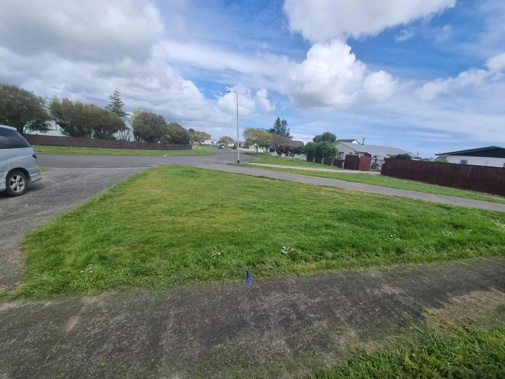
Horowhenua district residents are up in arms over a council decision to stop urban berm mowing as part of cuts to reduce a rate increase.
The decision, which came into effect on July 1, is set to save almost $250,000 a year. It now requires residents and business owners to maintain berms themselves.
But one resident, who claims to have the biggest berm in Levin, says it’s not financially viable to hire a contractor and it’s “not worth having done”.
John Murphy said it would cost him $100 a month to cut his berm, which is larger than his own lawn.
“The council decided they were going to cut it, so it stopped in mid-winter, but I don’t think anyone noticed because essentially nothing grows mid-winter here really.”
He said the debate had been a “hot topic” over the past few weeks, with residents taking to social media to voice their complaints.
“I’m certainly not getting anyone in to cut it and if the council want to send me a bill, it’s going straight in the bin.”
He said the decision comes amid a 17% increase in rates and most residents in Levin were elderly, disabled or on low incomes.

Levin resident John Murphy claims he has the biggest berm in the town and refuses to mow it. Photo / John Murphy
“It’s something that the council owns. I can’t charge for parking or for someone to put a tent out there overnight to meet that cost... I have no say in how it’s utilised.
“What really frustrates me is that they still mow the park across the road,” Murphy said.
Horowhenua District Council acting chief executive Brent Harvey said it “understands the concerns raised by residents” following the decision to cease urban berm mowing.
“Unfortunately, due to rising costs of goods and services, council was forced to explore cost-saving measures.”
Harvey said the decision was made following “extensive consultation” as part of the Council’s Long-Term Plan (LTP) from 2024-2044.
He said the community was encouraged to engage and submit feedback during LTP consultation, with multiple options presented.
“Of those who participated, the majority opted for option 3, which included stopping berm mowing to save approximately $240,000 annually.”
Option three proposed to reduce services by 46% to achieve a rate increase of less than 17.4%.
Harvey acknowledged the change may be challenging for some residents, “particularly older individuals or those unable to tend to their berms”.
“For those in this situation, assistance is available through Work and Income New Zealand (Winz), which can help cover the cost of hiring a contractor for lawn care.”
Harvey said if a berm becomes a hazard, residents could also report it to the council and it would address any safety concerns.
“Council takes fire safety seriously, and we encourage residents to report any potential hazards so they can be dealt with promptly. Our open spaces maintenance team will continue to manage weeds around service assets such as poles and posts to ensure that key areas remain safe and tidy.”
He said the decision to stop urban berm mowing “was not made lightly” and rising costs left the council with limited options.
“Feedback from the community through the LTP consultation indicated a strong preference for cutting costs.
“It’s important to note that Horowhenua was one of the few councils still offering this service, and while we acknowledge that some may be disappointed with the decision, it was made to relieve financial pressure on ratepayers, particularly those on fixed incomes.”
Asked how feedback from residents would be handled moving forward, Harvey said the situation highlights the “balancing act” faced by local government.
“Ultimately, decisions must consider the views expressed during consultation, but we remain committed to listening to all voices and will continue to monitor the situation closely as we move forward.”
Take your Radio, Podcasts and Music with you









